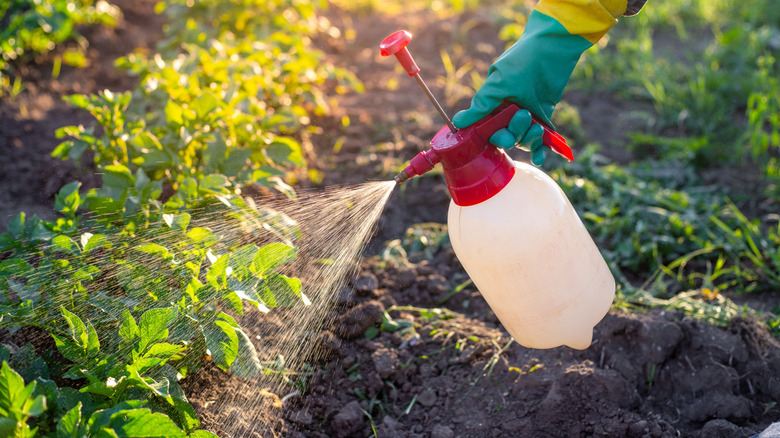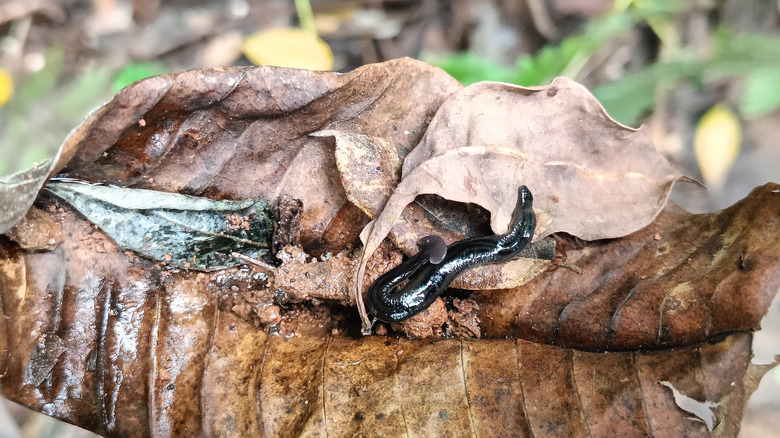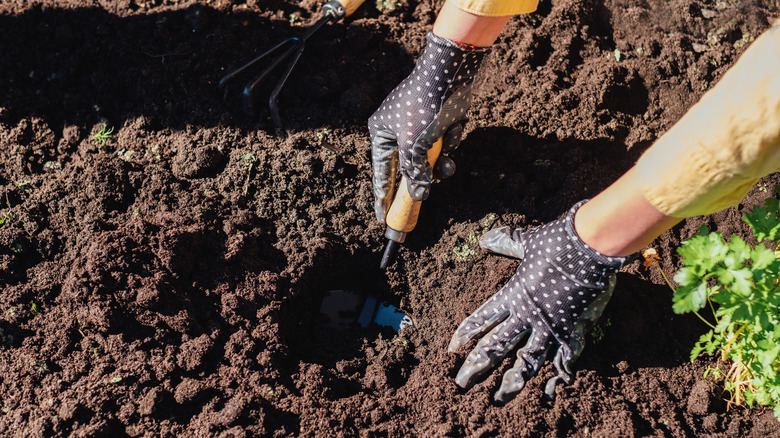The Garden Pest You Can't Afford To Ignore
If you've ever had the misfortune of seeing a hammerhead worm, you'd know about it. These unique little creatures look like someone crossed your classic earthworm with the top of a hammerhead shark. Think of a long, slimy body with a strange shovel shape at the top. While they're not native to the US, they have been unwelcome guests in some gardens since the 1990s. But do not make the mistake of confusing them with earthworms. Earthworms are happy and helpful garden neighbors who spend their time digging tunnels and improving your soil, but hammerhead worms, on the other hand, are predators.
Hammerhead worms are in your garden looking for the friendly little earthworms to hunt, and in quite a horrific way, too. They basically trap them before liquefying and then eating them. Charming. The things you should be feeding worms for healthy garden compost don't apply when it comes to hammerhead worms. They are not interested in your banana peels and coffee grounds and they will not do anything for your compost either.
Why hammerhead worms are bad news for your garden
As you probably know, earthworms are a godsend for gardeners, doing all kinds of great work under the surface of your soil. There's a whole host of reasons to want to attract more worms to your garden, including keeping soil loose and helping roots to breathe. But the arrival of hammerhead worms will undo all the earthworms' good work by eating them all, as well as any slugs, snails, and other key players in your precious and thriving ecosystem.
Moreover, hammerhead worms contain a neurotoxin called tetrodotoxin. It won't do major damage to humans unless you touch them with your bare hands, then rub your eyes or put your finger in your mouth. You certainly don't want your pets to be eating or licking them either. And the biggest nightmare of it all is that these worms reproduce by splitting in half, so don't bother trying to hack them up with a spade. You'll just make two. It's like something out of a horror film, isn't it?
Getting rid of hammerhead worms
To get rid of these little critters for good, you will need to act carefully. You can't cut them in half because they'll only reproduce, and you'll definitely have to wear gloves in order to actually pick them up and dispose of them so you don't come in contact with their toxins. The best way to kill them is to get a stick with a paper towel on the end and use it to pick up the worm and put it in a sealed container or a resealable plastic bag. You can use an easy vinegar trick to kill worms — just a splash inside the bag will do the trick. Salt also works, and so may soapy water, but just be sure the worm is fully submerged, and then you can even toss the bag in the freezer overnight to be extra safe.
To keep them away from your garden going forward, inspect any new plants before bringing them in and keep an eye out after heavy rain as that's when they're most likely to appear. They're not unbeatable pests, but they're persistent, so gardeners need to be too. A little vigilance now can save your soil and your delicate ecosystem later.


